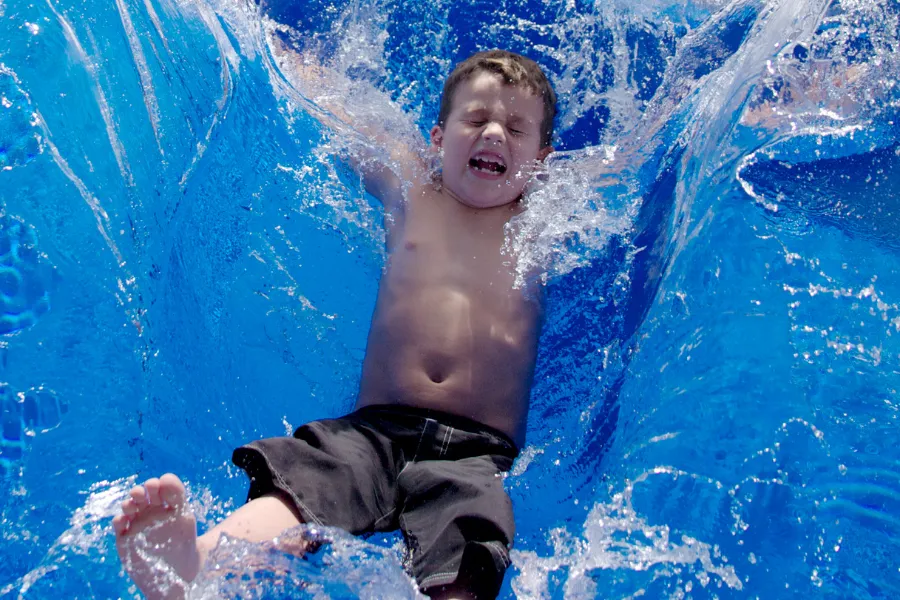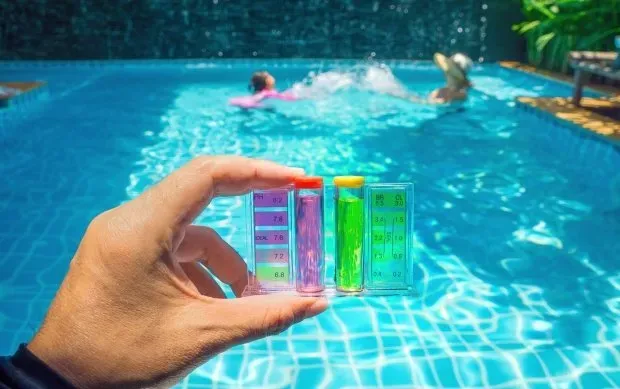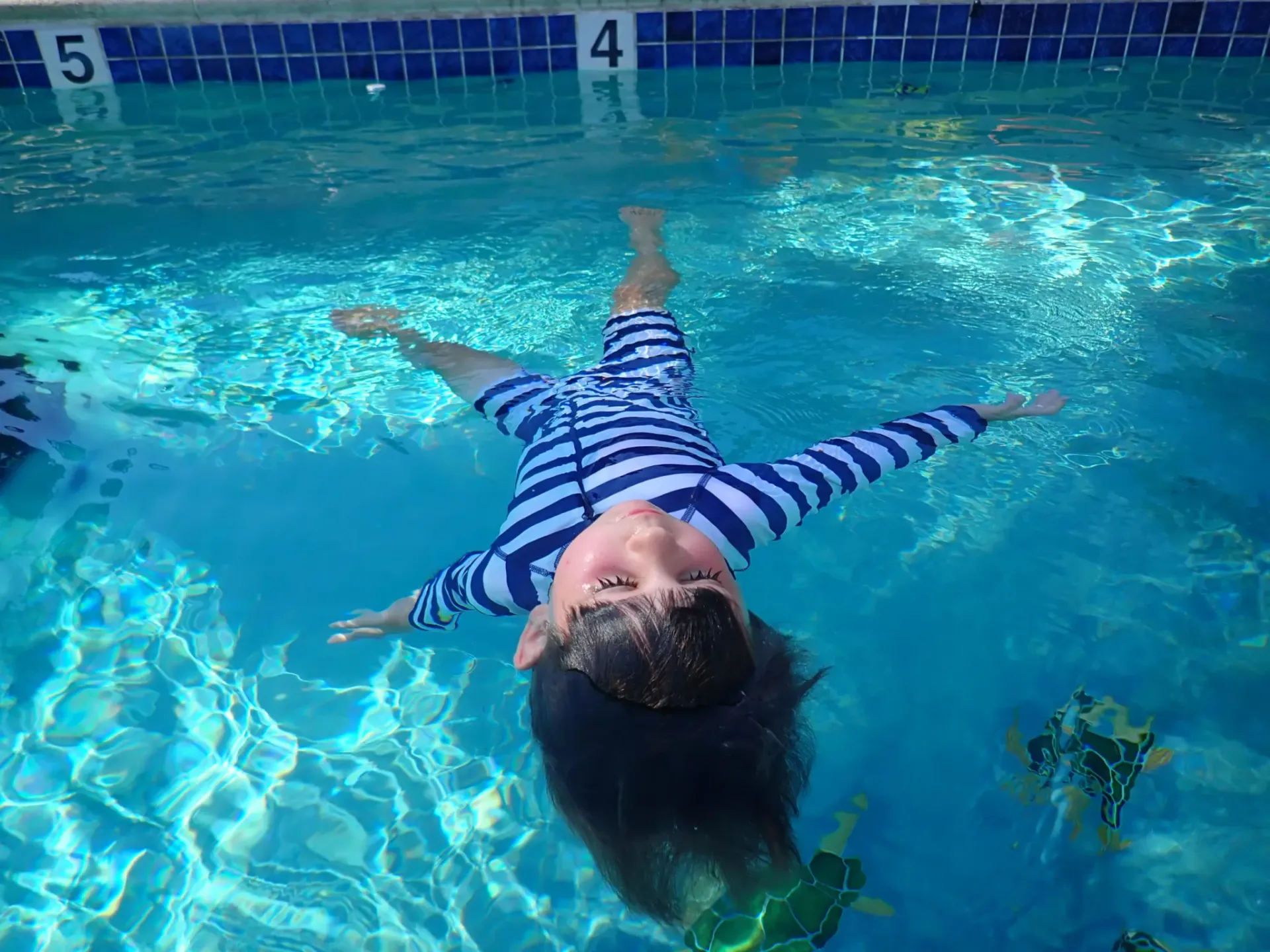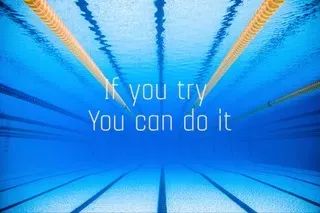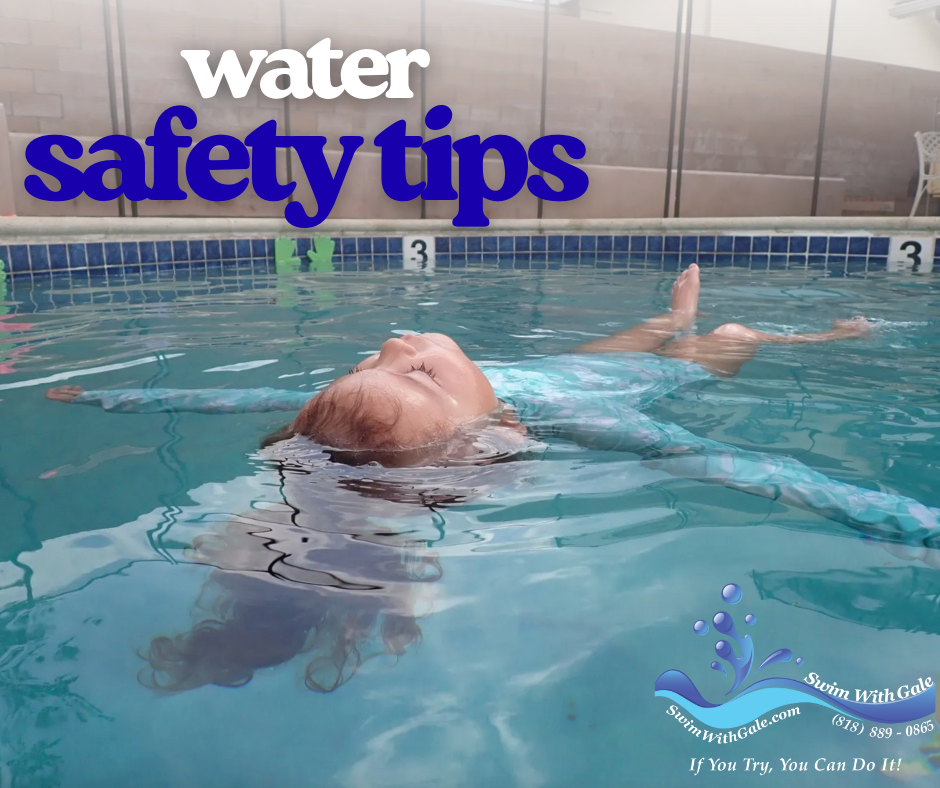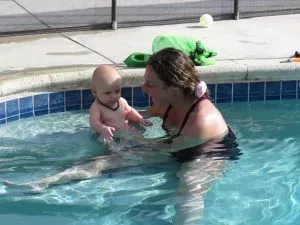If You Try, You Can Do It!
Are you scared of the water? Have you had a bad experience or an uncomfortable swim lesson elsewhere? At Swim With Gale, we work with infants, children, teens, and adults giving them a positive experience while learning life-saving skills. You’ll become stronger, safer, and happier in the water.
Why Swim
Learning to swim allows adults, children, and infants to develop water safety and survival skills, builds strength, muscle tone and assists with balance and coordination. However, the benefits of swimming reach beyond the physical benefits, providing several positive mental benefits as well. There is no better sport for overall health than swimming. It’s great for your heart and circulation, provides natural, low-impact resistance for building muscle and as it challenges your body it will help release endorphins – your body’s natural pain and stress fighters which also make you feel happy. Learning to swim early on will also reduce the fear of water, making bathtubs, pools/spas, beaches, lakes etc., a less stressful environment. Most importantly, swimming is the only sport that can save your life! Once this skill is learned, it is rarely forgotten and is available to people of all ages. At Swim With Gale, we start teaching students as early as 3 months old.
Swimming Gives You A Total Body Workout
Moving in water is much more resistant than moving in air. This extra resistance requires the muscles in your body to work a bit harder and engage all energy systems for a full body workout. This full body workout helps burn more calories which can increase one’s metabolism. With the natural support and resistance provided by water, swimming is a fantastic activity for developing strong joints and for exercising joints that are injured or damaged.
Develops Confidence
Children and adults can often be fearful of the water if they have not been sensitized to it. Overcoming this fear can be extremely empowering, boosting confidence and self-esteem. Improving self-esteem instils a positive attitude towards physical activities and life skills throughout one’s life. Swimming is a great stress reliever ~ clearing the mind of the daily routine and fostering a balanced lifestyle. Swimming has been proven to increase endorphins which are chemicals naturally produced by the body to relieve stress and pain.
Enhances Mental Development
Swimming stimulates young children’s senses and is thought to improve brain and emotional development. As babies develop mobility functions and breathing becomes deeper, they are encouraged to make sound. This improves communication and aids in language and speech development. Swimming also supports a child’s mind/body connection as studies have shown that during exercise a child’s mind is stimulated, promoting further brain development and intelligence.
Improves Flexibility
Swimming gives you the opportunity to stretch out your entire body with every stroke. When you are in the water, you can move your body in ways it doesn’t normally move throughout the day.
Improves Cardiovascular Endurance
As an aerobic activity, swimming engages and strengthens your cardiovascular system. Since swimming is a low impact activity, you can enjoy the cardiovascular benefits daily. Swimming builds your muscles, lung capacity, as well as providing the strength of character to push further and endure longer.
Low Impact
Swimming has a minimal impact on your body ~ allowing for longer workouts and higher repetitions. When swimming you are not applying a lot of pressure to your muscles, joints, and ligaments as other sports do.
Since water is “zero gravity” swimming makes the perfect exercise for everyone.
Improves Sleep
Swimming fatigues your entire body, as you use your entire body to move through the water. Sleeping better at night improves your productivity during the day.
Life-Long Fitness
Swimming is one of the best activities you can do every day of your life! No matter how old or young, whether you have a disability or injury, pregnant, overweight, underweight you can swim every day!
Life Saving
Being able to swim is a life-long skill. Learning to swim is simply not enough ~ one must be able to survive under any water conditions. You and your children should learn to swim as early as possible. There is water all around us, even if it’s as small as a bathtub. Making sure that you or your child is comfortable in and around water is essential to their safety.
Survival swimming
Survival swimming incorporates being able to breathe when needed. Many programs teach children to lift their heads to breathe, causing the legs to drop into a running position. This motion takes a significant amount of strength and energy and is, therefore, very difficult to maintain. Using this head lifting action will cause a child/beginner swimmer, to fatigue very quickly. At Swim With Gale we teach our students to roll over onto their backs and breath, maintaining a flat position on the top of the water to easily take a breath, maintain endurance and strength. Then to roll back to a swimming position to progress forward.
The Physical Benefits of Swimming
- Lowers blood pressure
- Reduces bad cholesterol and raises good cholesterol
- Aids in weight loss and weight maintenance
- Is easier on the joints than impact sports
- Benefits your immune system
- Preserves and improves functional capacity
- Strengthens muscles, thanks to the greater resistance of water
- Makes your heart a better and more efficient pump
- Improves flexibility
- Slows down the aging process
- Reduces your risk for heart disease and diabetes
- Reduces chronic pain, particularly from arthritis
- Improves muscle imbalances
- Develops lung capacity and helps COPD and asthma
- Exercises nearly every muscle in the body, especially if you swim all four strokes (freestyle, backstroke, breaststroke, butterfly)
- Lowers cortisol
- Improves sleep
- Allows you to exercise when pregnant
The Mental Benefits of Swimming
- Enhances the connections between left and right hemispheres
- Prevents brain shrinkage
- Can help you make new brain cells
- Improves problem solving skills and memory
- Reduces stress
- Allows you to be disconnected in an increasingly overconnected world
- Reduces depression and anxiety
- Improves self-control and willpower which can translate to the rest of life
- Offers relaxation through the repetitive nature of movement
- Improves self esteem
- Improves mental toughness
The Emotional and Social Benefits of Swimming
- All different levels can exercise in the same pool at the same time
- With a variety of exercise equipment, such as kickboards, pull buoys, snorkels, and fins, you can create a variety of workouts that are exciting. Depending on your swim level, create an exercise routine that is easier or harder as need be
- It’s just plain fun!
- You get used to seeing yourself in a swimsuit
- You can swim at any time of the day or night, when it is cold or warm outside
- It’s uniting, not dividing—we all rest at the same wall
- It’s adaptable, and you can do different workouts depending on how you feel
- It’s a lifetime sport

